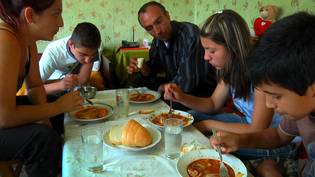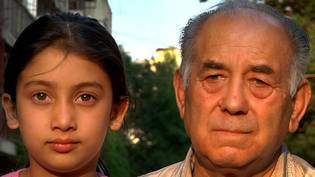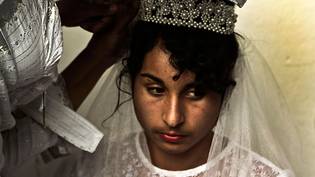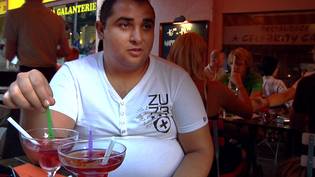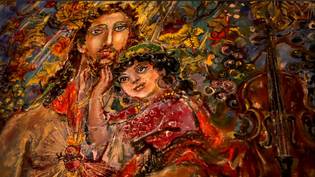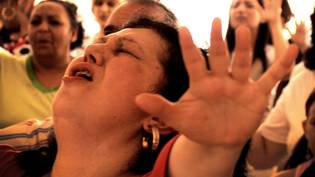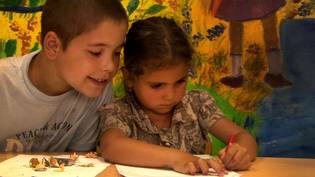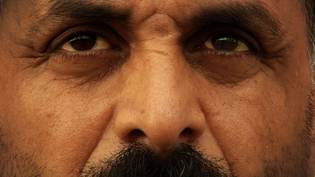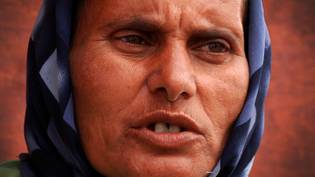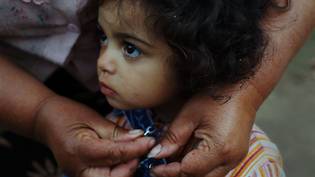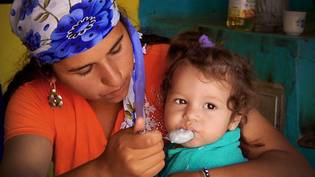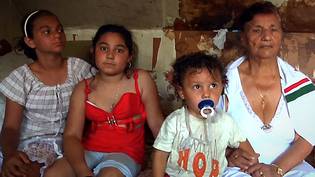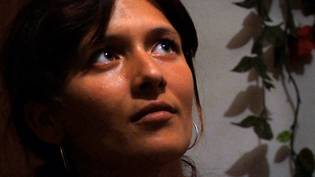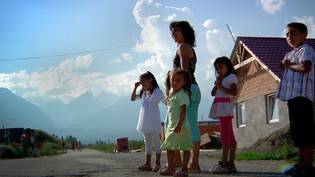Colorful but Colorblind: Roma Beyond Stereotypes
Colorful but Colorblind is a project aimed at remedying anti-Roma stereotyping through the creative use of multimedia in reporting minority issues in new member states of the European Union in Central and Eastern Europe (Bulgaria, the Czech Republic, Hungary, Romania and Slovakia) and internationally. Conceived by Transitions, a Prague-headquartered media development organization and Internet publisher, the project is implemented in close cooperation with four partner organizations in the target countries, the Center for Independent Journalism (CIJ) in Budapest, the Center for Independent Journalism (CJI) in Bucharest, the Media Development Center (MDC) in Sofia, and MEMO 98 in Bratislava. Leading specialists in multimedia storytelling and production from the School of Communication at the University of Miami took part in the project as trainers and producers.
Most Roma communities in Europe face poverty, social exclusion and discrimination. While significant, if insufficient, efforts to address the problems that Roma face have been made at both European and national levels in recent years, there are sometimes political forces, within or close to the political mainstream, campaigning on openly anti-Roma platforms in some of the new member states. Recent years have also seen a series of violent attacks on Roma people, in some cases with fatal consequences.
In addition to scapegoating Roma for many local problems, Roma communities are also often blamed for negative opinions of countries, such as the Czech Republic and Romania, abroad (e.g. the negative reactions in the Czech Republic to the large number of asylum applications of Czech Roma in the West or the anti-Romanian campaign in the Italian media following the arrival of a large number of Roma from Romania to Italy).
Few media outlets feature balanced coverage of Roma communities. In fact, media coverage often exacerbates the animosity toward Roma as it typically focuses on controversial issues in a sensationalist manner without much consideration of the wider context from which the problems originate. As most outlets are commercial and often driven exclusively by market forces, they show little interest in confronting prejudice and stereotypes. Often even positive articles on Roma individuals in the media deploy patronizing discourse, framing Roma success stories as oddities.
The need to encourage fair and balanced media coverage of the situation of Europe's Roma communities is pressing. By focusing on media training and collaboration between Roma and non-Roma journalists on specific stories, this project aimed to simultaneously encourage a more nuanced coverage of Roma issues in Central and Eastern Europe, greater participation of Roma journalists in mainstream media operations, and inter-cultural dialogue and mutual understanding. By engaging top specialists in multimedia storytelling, the project sought to contribute to the transfer of specialist skills needed to produce high-quality multimedia content on minority issues.
Project Activities
Colorful but Colorblind provided 50 Roma and majority community journalists, ten from each target country, with training in using multimedia to report on minority issues. In May and June 2010, five weeklong training workshops were held, one in each country.
The training concentrated on developing the skills and techniques needed to produce professional quality audio-driven video stories, covering equipment and best practices for content gathering and editing. The training included practical exercises, conducted both in classroom and in the field, and discussions of specific considerations regarding the coverage of under-reported peoples and cultures.
Following the training, the participants were divided into groups of two-most comprising one Roma journalist and one majority-community journalist-to work on a Roma-related story. In July 2010, each team was joined by a graduate student from the School of Communication at the University of Miami with support from the Knight Center for International Media's Our City project. The twenty-five stories featured on this website are the result of that collaborative effort.
The Center's Our City project is the first in a series of topic-specific global journalism experiments committed to solving the most pressing problems of our time. Instead of depending on a strategy of journalists from influential institutions fanning out to hot spots around the world to produce authentic reports, this experiment focuses on empowering local storytellers to report on issues of global significance. Stories are filed online to bring cross-border and cross-cultural understanding of some of the most intractable challenges faced by our global society.
The training and production components of the Colorful but Colorblind project were designed and implemented by Rich Beckman, Professor and Knight Chair in Visual Journalism at the School of Communication at the University of Miami and Director of The International Multimedia Workshops for Ethical Reporting on the World's Most Under-Reported Issues. Trainers included Jim Seida, Senior Producer, MSNBC.com, Candace Barbot, CEO / Founder at Pulp2Pixel Media Inc. and Ben de la Cruz, Emmy Award winning documentary video producer and reporter at The Washington Post. Story coaches included Travis Fox, Emmy Award winning freelance videographer, NYC, Trevor Green, Senior Video Editor & Operations Assistant, Knight Center for International Media, University of Miami and Seida. Kim Grinfeder, Assistant Professor, School of Communication, University of Miami and Daniel Cloud, Senior Programmer, Knight Center for International Media, University of Miami, directed the web design and programming teams.
The stories on this site are grouped into six general categories: Tradition, Prejudice and Discrimination, Family, Religion, Giving Back to the Community and Sports. For a majority of the journalists involved, this publication represents their first experience in telling stories in a multimedia format. The narrative style used on this project is designed to give a voice to the subjects, enabling them to take ownership of their stories and providing them with a platform to share their successes and challenges they face with a global audience with a view to promoting intercultural dialogue and positive social change.
These stories are available for republication in Roma and mainstream outlets. Requests for republication should be sent to the project director, Tihomir Loza (tihomir.loza@virgin.net ).








